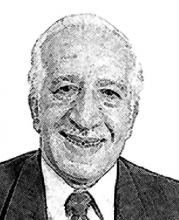You are here
What awaits Syria?
Dec 19,2015 - Last updated at Dec 19,2015
No amount of Vienna meetings or Geneva communiqués can stop the war in Syria unless the root causes of the conflict are addressed.
A new round of negotiations took place in New York this week, but it did not tackle the conundrum of questions haunting average Syrian citizens: Would President Bashar Assad and his Alawite minority continue to rule the country?
Would the main two powers, the US and Russia, or Iran and Saudi Arabia impose their life style on a post-Assad Syria?
Which power can enforce a ceasefire on the fighting militias, since there is contradiction of interests amongst those who are affiliated with Turkey, or Qatar or Moscow or Washington or Daesh?
The International Syria Support Group (ISSG) is made up of 20 nations who cannot build up on the outcome of former conventions or meetings.
The Geneva communiqué of 2012 prioritised a Syrian-led process that will establish “credible, inclusive, non-sectarian” governance within six months, including a scheduled process to draft a new constitution, and culminate in “free and fair elections” guided by that constitution within eighteen months.
The elections would be held under UN supervision, to the “satisfaction of the governance” and according to the highest standards of accountability, with all diaspora Syrians eligible to participate.
But UN special envoy Staffan de Mistura could not even get humanitarian food relief to civilians in Damascus and Homs, so who expects him to impose United Nations resolutions on fighting groups and throat cutters?
Following the Vienna meetings of November 14, 2015, US Secretary of State John Kerry stated that all ISSG members support January 1, 2016 as a target date for all opposition groups to meet and choose representatives to negotiate a political process with the regime.
But that triggered other questions: For how long will negotiations last?
And in case of a transition, what would be the target date that ends Assad’s rule, in view of Russian President Vladimir Putin’s statement this week that no one has the right to replace an elected president of another country?
Such legitimate questions require an answer; Syrian citizens need to know what future is being planned for their country.
Saudi Arabia achieved a commendable deed when it successfully managed to get Syrian opposition groups to unify their ranks and elect a former prime minister to be their spokesman.
But the most important problem remains: Will Russian geopolitical interests and Iranian aspirations to hegemony allow Assad to step down?













